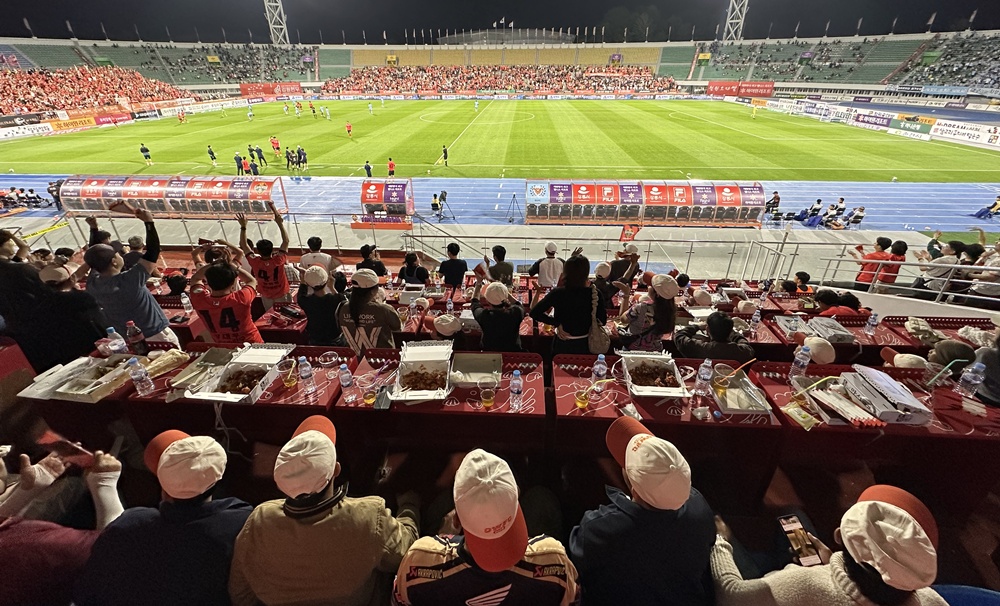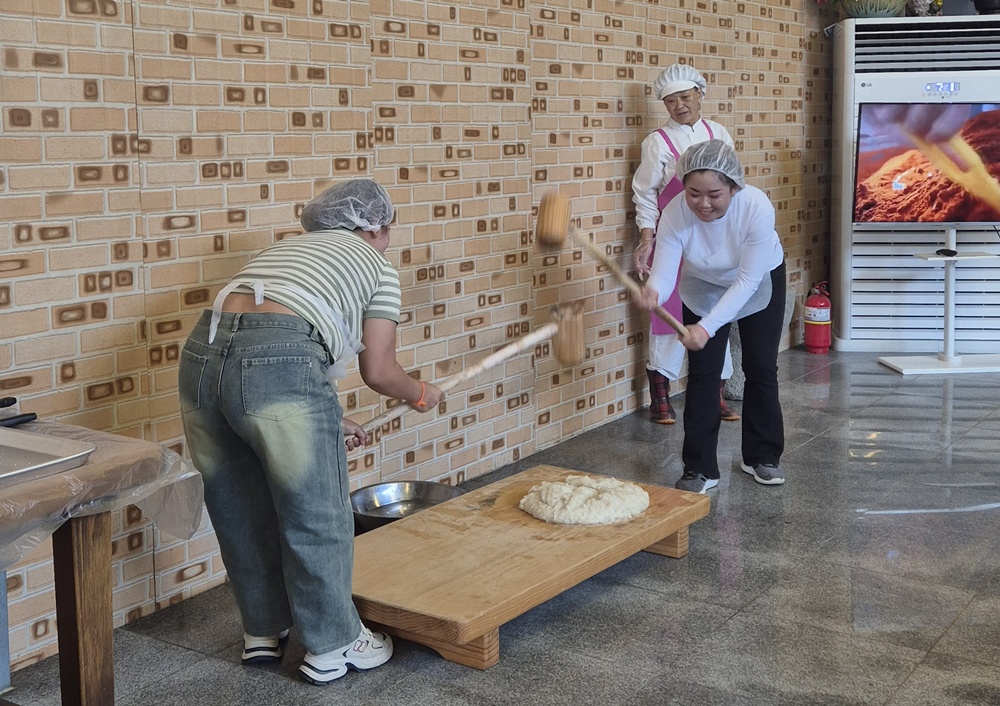
Gangneung, Gangwon-do Province, offers programs to help foreign seasonal workers settle in the region like this one for attending a home game of the pro soccer team Gangwon FC. (Gangneung City Hall)
By Kang Gahui
With the number of foreign seasonal workers hitting a record high, local governments are speeding up efforts to help them settle in the country.
More policy and institutional actions nationwide seek acceptance of these laborers as neighbors rather than just short-term labor.
The Ministry of Justice on June 24 held a meeting with the Ministry of Agriculture, Food and Rural Affairs and the Ministry of Oceans and Fisheries. The three sides agreed to add 22,731 foreign laborers in the second half of this year, meaning the 2025 figure will hit 95,700, up 41% from last year.
As the labor shortages in agricultural and fishing villages start to see relief, each region is striving to stabilize such workers' livelihoods and welfare.
For example, Gangneung, Gangwon-do Province, offers programs to seasonal workers for their assimilation into society through opportunities to communicate with residents. The initiatives include a parade at the Gangneung Danoje Festival, tickets to see home games of the pro soccer team Gangwon FC, sales events at bazaars and visits to regional tourist attractions.
Other efforts seek to remove blind spots in medical welfare. In November last year, Gangneung concluded memorandums of understanding with relevant organizations to support medical expenses like those for emergency treatment and drug tests based at Gangwon State Gangneung Medical Center.
Substantial improvement of living conditions is another priority through activities like installation of wallpaper and floorboards and provision of daily necessities and quarantine services.
Gyeongsangnam-do Province is expanding support through more direct means. It is investing its own budget to subsidize insurance for disease, health and occupational hazards, transportation expenses for leaving and entering the country, and costs to improve living conditions at farms that employ seasonal workers.
The province's counties of Hadong-gun, Hamyang-gun and Geochang-gun operate dormitories exclusively for such laborers. Construction of additional dorms is underway through a national project funded by the Agriculture Ministry: two in the city of Miryang and one each in the counties of Sancheong-gun and Hamyang-gun.

Seasonal workers from Laos on July 14 make injeolmi, or rice cake coated in soybean powder. (Sunchang-gun Office)
Sunchang-gun County, Jeollabuk-do Province, aims to reduce the cultural gap between its region and the rest of the country. On July 14, it held a cultural program for seasonal workers from Laos on making gochujang (spicy red chili paste) and injeolmi, or rice cake coated in soybean powder, in Sunchang Gochujang Village and experienced fermented foods. They later visited the valley at Gangcheonsan County Park to experience nature.
Domestic systems and support policy are thus using more detail and diversity to make foreign seasonal laborers feel more welcome as neighbors in their respective communities.
kgh89@korea.kr